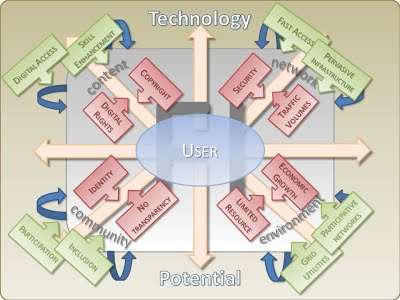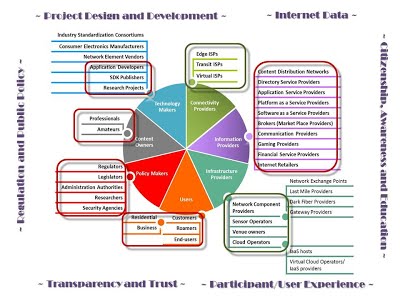The Future Internet (FI) promises much if only in respect of the opportunity which might be available to exploit all the benefits of the Internet as it is now, but bigger, better, more secure and more efficient. As the technology develops, more and more potential is created. Bring users into the picture – as has been seen to be essential on many occasions in SESERV, not least the workshops in Oxford, Athens and Brussels, as well as the focus groups described in D2.2 and D3.2 – then there are benefits to them in various areas, such as access to and the generation of content; the potential to engage in ad hoc as well as existing on-line communities; but also to be able to learn about and effect the environment; all of which will ultimately have an effect on the network and infrastructures underlying all these activities. In each of these areas – content, community, the environment, and networks – as we move forward there will doubtless be risks and challenges that must be addressed (the red boxes in the figure), though at the same time there will be greater opportunities especially for inclusion and on-line presence (the green boxes). The challenges and opportunities are discussed more fully in D2.2. Here, let’s just summarise SESERV’s recommendations for a way forward. Having identified the main FI ecosystem stakeholders, the two SESERV co-ordination work packages engaged with most of them directly and in discussion (in the figure below, we are specifically interested in those outlined with red boxes. For more detail, see D2.2 and D3.2 ). In drawing together the discussions, not least from the focus groups, we came up with recommendations that fall into eight different categories:
We may summarise these recommendations within each area as follows, though they are dealt with in
context and in greater depth in D3.2 :
| ||||||||||||||||||||||||||||||||||||||||||||||||||||||||||||
|
|


